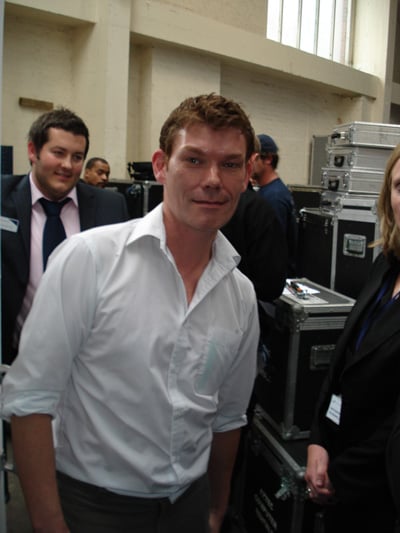This article is more than 1 year old
MPs join fight to save McKinnon from US prison
Pentagon hacker 'too vulnerable' to survive hard time
MPs are being asked to support accused Pentagon hacker via a motion demanding he serves any jail time he might eventually receive in the UK, even if his long-running campaign to avoid extradition and trail in the US fails.
Lawyers for McKinnon claim his recent diagnosis with Asperger's syndrome ought to preclude his extradition to the US on hacking offences. Home Secretary Jacqui Smith rejected these arguments last month, triggering a judicial review of the decision.
 Although it might be politically embarrassing to haul off the admitted hacker at this point there are currently no legal barriers to his extradition, following decisions by the House of Lords to reject his appeal and a decision by the European Court of Justice not to get involved. Since the US political establishment has bigger concerns than the fate of a UFO hunting hacker in the run-up to tomorrow's presidential elections its unlikely that anything will happen in the immediate future.
Although it might be politically embarrassing to haul off the admitted hacker at this point there are currently no legal barriers to his extradition, following decisions by the House of Lords to reject his appeal and a decision by the European Court of Justice not to get involved. Since the US political establishment has bigger concerns than the fate of a UFO hunting hacker in the run-up to tomorrow's presidential elections its unlikely that anything will happen in the immediate future.
Meanwhile McKinnon's supporters in the Houses of Parliament are seeking to apply pressure on the Home Secretary via an early day motion calling for the UK government to seek assurances that McKinnon will be sent back to the UK to service his any sentence handed down by a US court.
David Burrowes, Conservative MP for Enfield Southgate in London, Tory front bench spokesman on Justice and McKInnon's MP, has sponsored the Early Day Motion. The motion asks the UK government to seek the same types of assurances as the Israeli and Dutch governments receive in cases where citizens from those countries with health problems are deported to the US.
Supporters of the motion (full text here via the Free Gary support blog) reportedly include former Home Secretary David Blunkett. Other supporters include Chris Huhne, Lib Dem home affairs spokesman and Chris Mullin, former Foreign Office minister.
Burrowes has also asked parliamentary authorities to schedule a debate on the extradition, an opportunity extended to defendants in the NatWest Three extradition case.
McKinnon faces seven charges of hacking into 97 US government, NASA and military systems during 2001 and 2002. He admits the attacks but argues he was only seeking evidence that the US government had suppressed knowledge about advanced technologies harvested from crashed UFOs and contacts with aliens. US authorities, on the other hand, have described the former sysadmin as the biggest military hacker ever.
Supporters of the London-based Scot have run a high-profile campaign against his extradition since 2005, arguing that justice would be better served by McKinnon's trial in the UK. ®
